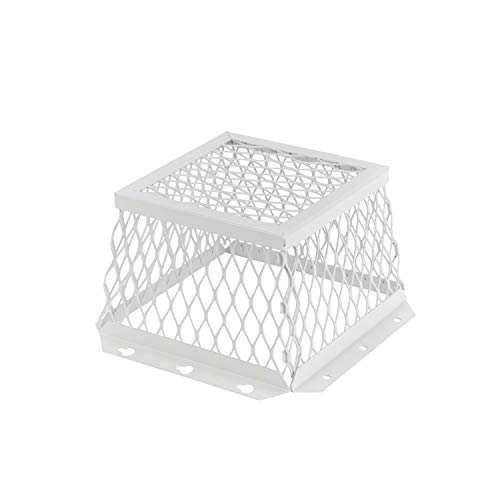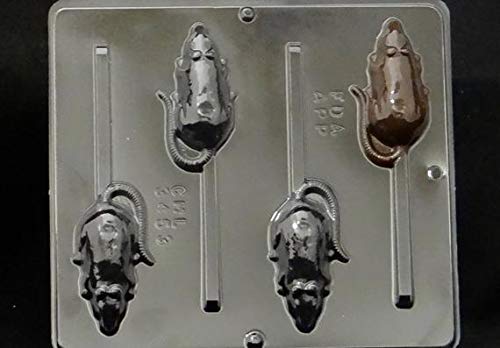MadCatter
Active Member
I'm onto my third rat with this same type of abscess and am desperately hoping somebody has seen this before and can give me some advice (whether it be "sorry, you're doomed" or an actual treatment). The pus is greenish and elmer's glue consistency, NO smell.
Rat 1: Long history of the abscesses around his neck and shoulders. After vigorous flushing and keeping up with the abscesses, they disappeared for a while, only to show up deep in his abdomen. (It was after he seemed in the all-clear that he was introduced to his then other 5 cagemates). Vet thought it was a tumor, and after assessing the risks, it was decided not to operate, and to just let it grow. The big abscess caused smaller ones on his stomach to appear and open up on their own. Baytril and then chloramphenicol didn't seem to make any sort of dent.
WARNING: pictures of abscess, and abscess next to the dead rat:
http://farm3.static.flickr.com/2448/356 ... fb85cc.jpg
http://farm3.static.flickr.com/2443/356 ... e5b193.jpg
Rat 2: Had a severe head tilt because previous owners refused to take her to the vet. She was treated, but remained very wobbly and completely deaf. Shortly after Rat 1's smaller abscesses opened up, Rat 2 developed the abscesses symmetrically on either side of her throat, with one very large one on her esophagus. Those opened on their own, then more appeared, on either side of her neck, and symmetrically one in each of her armpits. these were lanced and she was started on Clavamox, which seemed to be working, until they popped up again - three very large abscesses pressed up into her neck and two more on her shoulders/armpits. She's since been PTS.
Rat 3: She developed a single abscess right on her esophagus which was caught early, lanced, flushed with iodine, and cultured. Vet didn't identify the individual bacteria (I didn't have the $90 on me to send it to the university) but the vet did place different antibiotics on it after letting it grow a bit. He said that Clavamox and Baytril were most effective, relatively speaking, but that they still were just sub-par. With Rat 3 in quarantine, she was put on baytril for the last 3 weeks. She developed another abscess (a different one, to the right, not the same one filling up again) the night before last.
_______
It seems to be internalized, spreading through possibly lymph nodes or the blood stream, and they only seem to spread to the other rats once the old ones open - perhaps when they try to clean each other's abscesses, and ingest the bacteria, but I honestly don't really know. It's been looked at by two different vets who specialize in small animals/exotics, as well as a cat/dog vet, and none have seen this type of pus (all are shocked that it doesn't smell - and it hasn't for any of the rats' abscesses).
My next step was to possibly hit Rat 3's body hard with a combination of antibiotics (while providing lots of beneficial bacteria to help with stomach upset), but I really don't know how useful this will be - what combination to try? How long and how strong? Considering the "behavior" of the bacteria/abscesses, it is perfectly possible that Rat 3 wont show any more signs of illness/abscesses, and in another 2 months after stopping treatment, have them appear again - this means I don't feel safe ever putting her back in with the others - and so is it worth even trying to get rid of?
Rat 1: Long history of the abscesses around his neck and shoulders. After vigorous flushing and keeping up with the abscesses, they disappeared for a while, only to show up deep in his abdomen. (It was after he seemed in the all-clear that he was introduced to his then other 5 cagemates). Vet thought it was a tumor, and after assessing the risks, it was decided not to operate, and to just let it grow. The big abscess caused smaller ones on his stomach to appear and open up on their own. Baytril and then chloramphenicol didn't seem to make any sort of dent.
WARNING: pictures of abscess, and abscess next to the dead rat:
http://farm3.static.flickr.com/2448/356 ... fb85cc.jpg
http://farm3.static.flickr.com/2443/356 ... e5b193.jpg
Rat 2: Had a severe head tilt because previous owners refused to take her to the vet. She was treated, but remained very wobbly and completely deaf. Shortly after Rat 1's smaller abscesses opened up, Rat 2 developed the abscesses symmetrically on either side of her throat, with one very large one on her esophagus. Those opened on their own, then more appeared, on either side of her neck, and symmetrically one in each of her armpits. these were lanced and she was started on Clavamox, which seemed to be working, until they popped up again - three very large abscesses pressed up into her neck and two more on her shoulders/armpits. She's since been PTS.
Rat 3: She developed a single abscess right on her esophagus which was caught early, lanced, flushed with iodine, and cultured. Vet didn't identify the individual bacteria (I didn't have the $90 on me to send it to the university) but the vet did place different antibiotics on it after letting it grow a bit. He said that Clavamox and Baytril were most effective, relatively speaking, but that they still were just sub-par. With Rat 3 in quarantine, she was put on baytril for the last 3 weeks. She developed another abscess (a different one, to the right, not the same one filling up again) the night before last.
_______
It seems to be internalized, spreading through possibly lymph nodes or the blood stream, and they only seem to spread to the other rats once the old ones open - perhaps when they try to clean each other's abscesses, and ingest the bacteria, but I honestly don't really know. It's been looked at by two different vets who specialize in small animals/exotics, as well as a cat/dog vet, and none have seen this type of pus (all are shocked that it doesn't smell - and it hasn't for any of the rats' abscesses).
My next step was to possibly hit Rat 3's body hard with a combination of antibiotics (while providing lots of beneficial bacteria to help with stomach upset), but I really don't know how useful this will be - what combination to try? How long and how strong? Considering the "behavior" of the bacteria/abscesses, it is perfectly possible that Rat 3 wont show any more signs of illness/abscesses, and in another 2 months after stopping treatment, have them appear again - this means I don't feel safe ever putting her back in with the others - and so is it worth even trying to get rid of?









































